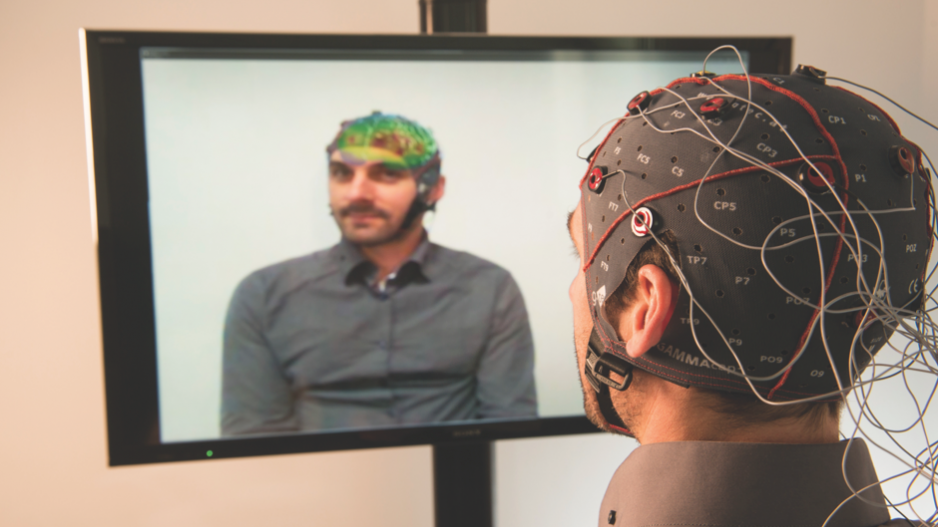Melding human brains with computers in The Matrix had dire consequences for mankind, which ended up trapped in a virtual reality (VR) landscape and subservient to machines in the 1999 film.
Fabien Lotte, however, is confident the brain-computer interfaces (BCIs) being developed in the real world aren’t nearly so frightening. Instead, the BCI research scientist at the French Institute for Research in Computer Science and Automation envisions a world in which the technology is used for everything from VR games to the rehabilitation of stroke victims.
“It makes people think of science fiction, so obviously that’s very exciting,” Lottetold Business In Vancouver on Roundhouse Radio.
BCIs use sensors that wrap around users’ heads to measure brain activity via electrical currents to send commands directly from their minds to computers.
“We cannot read minds … not yet,” Lotte added.
He’s travelling from France this week to speak at the June 16 Brains and Computers conference at the Centre for Digital Media (CDM) in Vancouver.
“We’re now controlling computers with gestures and with our voices, so it makes sense to go even deeper,” said CDM director Richard Smith, who is moderating a panel featuring Lotte and BCI experts from across North America.
While Lotte is on the West Coast, he’ll also meet with BCI specialists involved in the medical field as well as gaming experts using BCI for VR applications.
Smith said officials from the French Consulate in Vancouver have been able to “punch way above their weight” in recent years when pushing for connections between the respective tech sectors in B.C. and France.
Philippe Zeller, the former French ambassador to Canada, told Business in Vancouver in 2014 that “there’s no huge business relationship between British Columbia and France,” but he hoped new trade initiatives would change that in the coming year.
Flash forward to 2016 and Gratianne Daum, a press attaché at the French Consulate in Vancouver, told BIV in an email the tech sector has been identified as an area of excellence for both France and B.C. She said the consulate wants to “trigger meetings with counterparts and create partnerships whenever possible with universities, research [organizations], SMEs [small and medium-sized enterprises] and companies.”
This includes funding visits for government officials and academics. In April, Col. Éric Freyssinet of the French Ministry of the Interior was part of a delegation sent to Vancouver to visit experts at Simon Fraser University and attend the Serene-Risc cybersecurity conference.
“Our first [priority] is the search for new contacts in the academic community,” he told BIV, adding the delegation was also there to identify B.C. cybersecurity companies that could develop defences for France’s critical infrastructure.
“It is important that innovative solutions that are developed in different parts of the world are at least known.”
While Freyssinet acknowledged recent terrorist attacks in France have made more decision-makers aware of cybersecurity vulnerabilities, he said those threats were not the impetus for the Vancouver visit.
“We haven’t decided to come to Vancouver by chance,” said Benoît Dupont, Serene-Risc’s Quebec-based scientific director.
“There are two or three hubs in Canada where you have a huge concentration of cybersecurity companies, like Fortinet [Nasdaq:FTNT] for example, which is a B.C.-[founded] cybersecurity company.”
Smith, meanwhile, said that along with Mexico, France has been pushing harder than most other countries for building stronger links between the tech sector in their respective jurisdictions.
“I credit quite a bit the French Consulate here in Vancouver,” he said. “They’re very active and very engaged with the academic community, the business community and the cultural community.” •




